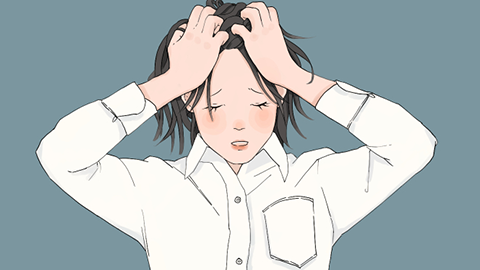What causes endometrial thickening after menopause?
Generally, postmenopausal endometrial thickening may be caused by factors such as hormonal fluctuations, individual physiological differences, endocrine disorders, endometritis, or endometrial polyps. It is recommended to seek timely medical consultation to determine the underlying cause and receive appropriate treatment under a doctor's guidance. A detailed explanation is as follows:

1. Hormonal fluctuations: Occasionally after menopause, residual ovarian follicles may secrete estrogen, causing temporary elevations in hormone levels that stimulate endometrial thickening. If the thickening is mild and asymptomatic, regular follow-up examinations are sufficient without specific treatment.
2. Individual physiological differences: Some women naturally have a thicker endometrium after menopause. If the thickness remains stable over time without abnormal bleeding, it is considered a normal physiological variation. Maintaining a regular sleep schedule, avoiding late nights, and undergoing annual gynecological check-ups for monitoring are recommended.
3. Endocrine disorders: Postmenopausal dysfunction of the hypothalamic-pituitary axis may lead to relatively high estrogen levels, stimulating endometrial thickening. Symptoms such as hot flashes and insomnia might also occur. Emotional regulation and moderate exercise may help improve symptoms. When necessary, hormone-regulating medications such as progesterone soft capsules, dydrogesterone tablets, or nylestriol tablets may be used under medical guidance.
4. Endometritis: After menopause, decreased vaginal resistance makes it easier for bacteria to invade the uterine cavity, leading to inflammation. This inflammatory stimulation can cause endometrial hyperemia and thickening, often accompanied by increased vaginal discharge and mild lower abdominal pain. Patients may follow medical advice to use medications such as cefixime dispersible tablets, metronidazole tablets, or levofloxacin hydrochloride capsules to control infection.
5. Endometrial polyps: Localized excessive endometrial growth forms polyps, resulting in endometrial thickening, which may be accompanied by abnormal vaginal bleeding. Small polyps may be treated with medications such as progesterone soft capsules, medroxyprogesterone acetate tablets, or compound megestrol acetate tablets, as directed by a physician, to promote regression. Larger polyps require hysteroscopic polypectomy to remove the lesion and restore normal endometrial thickness.
In daily life, maintaining external genital hygiene and avoiding unclean sanitary products are important. Wearing loose, breathable cotton underwear can reduce genital irritation. Dietary adjustments should include reducing high-fat and high-sugar food intake and increasing consumption of fresh fruits and vegetables to help maintain reproductive health.




